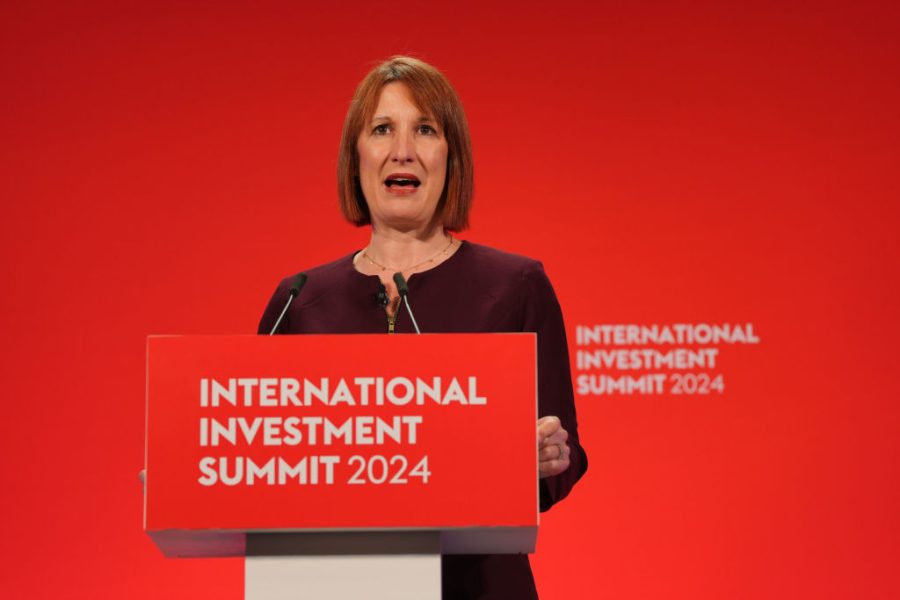The countdown to Labour’s first budget for 14 years continues. Unfortunately for Rachel Reeves, the mood music is not particularly promising. While the Chancellor was offered a ray of light on Wednesday with the news that inflation has fallen to 1.7 per cent (therefore leading to speculation of rate cuts sooner rather than later), Reeves’ party is growing increasingly concerned about what she will say at the despatch box come October 30th.
As first reported by Bloomberg, several cabinet ministers have written to Keir Starmer to raise alarm over real term cuts they have had to model for their departments. While last minute wrangling between ministers and the Treasury is expected ahead of a budget, the decision to go above Reeves’s head and straight to the Prime Minister is striking. It comes as Reeves sends her pre-Budget plans to the Office of Budget Responsibility.
The decision to go above Reeves’s head and straight to Starmer may backfire
Amid crowing from the Tories of ‘I told you so’, Reeves is looking to raise tax and show spending restraint. While much of this was not mentioned during the general election campaign, the Chancellor is arguing that she has a ‘fiscal blackhole’ of £22 billion to fill as a result of the Tory inheritance and her decision to give above-inflation public sector pay rises.
She also needs more money as some of the pledges she claimed would raise revenue in the Labour manifesto – such as non-dom reform and private school VAT changes – have met reality with the Treasury and OBR. There are now doubts they will bring in what was said. Finally, there are the departmental cuts the Tories priced in while in government. Reeves has said there will not be a return to austerity under her but that means she now thinks she needs to raise taxes or cut spending by around £40 billion in the Budget to avoid this fate.
Even if she achieves her aim, some in her cabinet are likely to feel the brunt in their departments. The Budget is accompanied by a one-year departmental spending review. There is a particular concern in the unprotected departments that they will be heavily hit on cuts. One of the areas where there is particular worry is the Ministry of Justice, where the department is already under strain with a courts backlog and shortage of prison places. ‘There is very little to cut,’ says a Whitehall source. This also extends to housing and transport – with concerns that it could lead to an inability to deliver on government programmes and thereby make the growth mission (meant to be the central purpose of this government) even harder to achieve.
Yet the decision to go above Reeves’s head may backfire. So far, Starmer has rallied around his Chancellor, who he views as integral to his government. One Labour insider points out the same was once said about Sue Gray (Starmer’s axed chief of staff) – but Reeves has been a key part of the Starmer project long before Gray was on the scene – Starmer relied on her heavily in opposition and continues to do so now with No. 10 and No. 11 working closely together. This morning Education Secretary Bridget Philipson defended Reeves as she said departments having to show spending restraint is not the same as a return to austerity.
The problem Reeves has is that the alternative of even more tax rises could also have a negative effect on growth. Within No. 10 and No. 11 Downing Street, the view has long been that the first year is the time to make the tough decisions. It’s when a government is at its strongest and when, in terms of the electoral cycle, one can risk some tough choices.
It follows that the hope of Reeves and her team is to use this budget to plant seeds for growth through investment (and a change to the fiscal rules) and to ‘fix the foundations’ by essentially clearing the deck on the tricky financial inheritance. Then Reeves will hope to use the comprehensive spending review due in the spring and later budgets to strike a more upbeat tone on spending. However, the fact that Starmer has frittered away goodwill in his first 100 days on staffing, his wardrobe and the handling of the winter fuel cut, means that it’s not clear his party are in the mood to wear tough decisions now for jam later. As one member of the 2024 intake puts it: ‘I’m very worried about what they will announce’.
Listen to Coffee House Shots, The Spectator’s daily politics podcast:








Comments